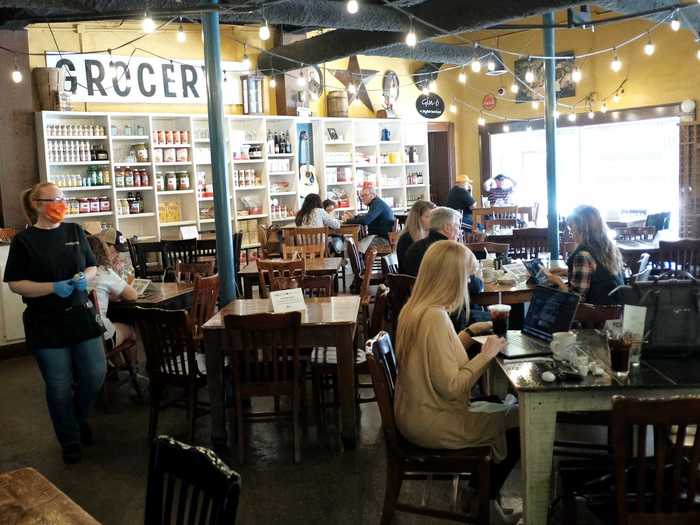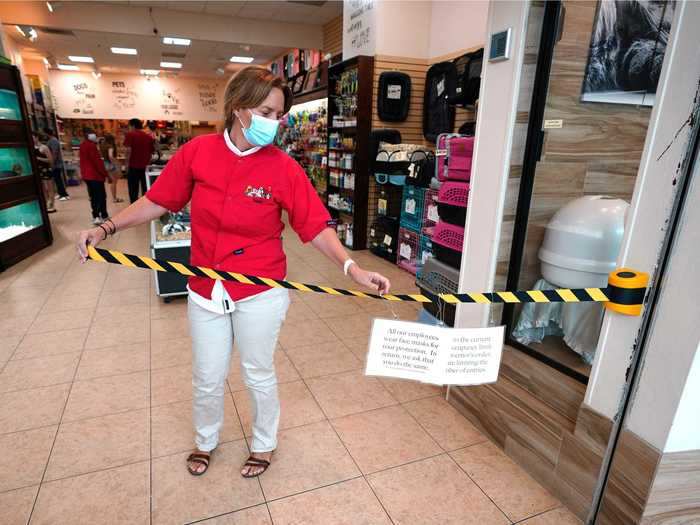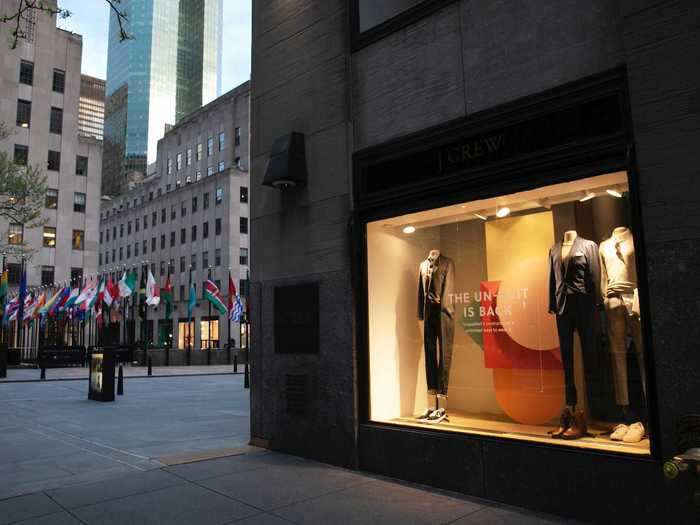Stores have begun reopening in certain states.AP Photo/LM Otero
- The retail sector lost 2.1 million jobs in April, the US Bureau of Labor Statistics said on Friday.
- The job losses were just the latest in a series of bad news for the industry, which saw several retailers file for bankruptcy this week.
- Meat shortages continue to be a concern for restaurants and grocery stores.
- Visit Business Insider's homepage for more stories.
This week proved to be an exceptionally difficult one for the already struggling retail industry.
2.1 million jobs were lost in the retail sector in April, the US Bureau of Labor Statistics said on Friday.
While stores and malls started to tentatively reopen in certain states, limits on capacity are putting pressure on margins and differing state regulations are causing confusion.
And, the industry saw the first of what could be many coronavirus-related bankruptcies in J. Crew and Neiman Marcus. Nordstrom additionally said it would close 16 stores for good.
Read the original article on
Business Insider
Meat production has plunged, leading experts to warn about shortages and rising prices.
A shopper surveys the overflowing selection of packaged meat in a grocery early Monday, April 27, 2020, in southeast Denver.
AP Photo/David Zalubowski
Meat-processing plants have become new hot spots in the pandemic, leading to closures and reduced production.
A new report from CoBank, a cooperative bank that is part of the Farm Credit System, predicted that pork and beef prices could rise by as much as 20% compared to 2019.
Meat shortages have had ripple effects; Wendy's, for example, has pulled burgers from the menu at some locations due to shortages of fresh beef.
Restaurants in reopening states are also adapting to a new normal. Many are struggling.
Jason Kempin/Getty Images
Stores reopened in certain states, albeit with strict new guidelines.
Store manager Natalie Hijazi temporarily closes off the entrance to a Pet Fair store inside The Woodlands Mall to help meet the current occupancy limits in place Tuesday, May 5, 2020, in The Woodlands, Texas. The mall reopened Tuesday with increased health and safety measures in place.
AP Photo/David J. Phillip
Texas, Oklahoma, and Indiana are among the states allowing "nonessential" retail stores and malls to reopen.
Stores must follow strict guidelines depending on the state where they are located. In Texas, for example, most reopened businesses must limit visitors to a 25% capacity, putting pressure on margins.
Understanding differing regulations in states and counties is also proving difficult for retailers.
"There's such a big range — and it takes quite a bit time to interpret the differences —rather than have something that is more consistent," Gap Inc. CEO Sonia Syngal told CNN, calling the discrepancies the company's "biggest challenge."
The coronavirus bankruptcies began.
Katie Warren/Business Insider
Retail was one of the hardest-hit sectors in a dismal jobs report on Friday.
Mark Lennihan / AP Images
According to the US Bureau of Labor Statistics, 2.1 million jobs were lost in retail for the month of April. Clothing and clothing accessories retailers saw the heaviest losses, with jobs declining by 740,000.
An additional 5.5 million jobs were shed in food services and drinking establishments.
Retailers from JCPenney and Macy's to Gap and Victoria's Secret announced in April they would be furloughing or laying off workers as they temporarily closed stores in response to the pandemic. Furloughed workers who are receiving benefits but not pay are classified as unemployed in the jobs report.





